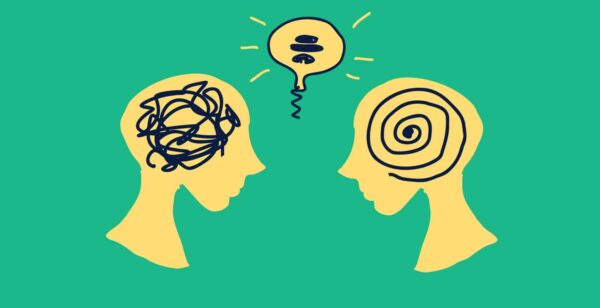“Everyone thinks. It is our nature to do so. But much of our thinking, left to itself, is biased, distorted, partial, uninformed, or downright prejudiced. Yet, the quality of our life and that of what we produce, make, or build depends precisely on the quality of our thought.”
This statement, published on The Foundation for Critical Thinking’s website, outlines an issue – human beings are, by nature, subjective creatures. Yet in an organization and team of any kind, the subjective lens through which we process and interpret information can cost us time and money. Enter critical thinking, which the same foundation describes as a “mode of thinking — about any subject, content, or problem — in which the thinker improves the quality of their thinking by skillfully analyzing, assessing, and reconstructing it.”
“In order to find deep insights and problem-solve efficiently, teams have to think critically. Critical thinking is one of the key ingredients that take a high-functioning team from good to great,” says Whitney Omosefe, an experienced organizational culture and learning and development consultant.
According to her, the opportunity to think critically increases employee engagement too. “It’s easy to burn out or become bored with our work when we aren’t given space to think critically or when our insights aren’t appreciated. Critical thinking keeps our intellect active,” she says.
With all these benefits, it’s in the best interest of your teams to prioritize critical-thinking skills. Here are three crucial ones every team should embrace.
1. Approaching situations with curiosity
Approaching situations with curiosity is a pillar of critical thinking, according to Omosefe. “Good questions are often more valuable than answers, so every team should embrace thoughtful inquiry and be genuinely interested in possible answers from diverse data sources,” she says.
“In an environment where teammates are encouraged to ask why, how, and to what extent, critical thinking flows, learning abounds, and new ideas are plentiful.”
Make sure that you encourage everyone in your team to ask questions often, as it will improve the quality of your thought processes.
2. Verbalizing assumptions
“Critical thinking can help us verbalize our own intuition and assumptions so that we are not delegating confusion or creating conflicts. With less confusion and fewer conflicts, a team can be much more effective,” says Dr. Lisa Lang of the Science of Business, a consultancy specialized in the Theory of Constraints, a logic-driven framework for problem-solving.
We all make assumptions and base our interactions with people and situations on these assumptions without even realizing it. For that reason, explicitly stating assumptions with the goal of challenging them is a must-have critical thinking skill for teams.
Lang suggests using the following framework to uncover and challenge assumptions. For example, consider the statement “If I touch a hot stove, then I will get burned.” To uncover the assumptions behind it, add because at the end of the sentence: “If I touch a hot stove, then I will get burned because…”
Write down all the reasons you can think of to identify your own assumptions. Here’s the kicker: your teammates might have different ones. Having each project stakeholder conduct this exercise and sharing the answers as a team improves communication, reduces confusion and can lead to better solutions. “For example, can you imagine a situation where you could touch a hot stove and not get burned? Could you wear an oven mitt or something on your hand?”
“If you can, then you have a path to another approach or solution. But even if you don’t uncover another solution, the explicit statement of assumptions will get everyone on the same page,” says Lang.
3. Identifying and analyzing problems
You can think all you want about a problem, but if you’re focusing your energy on the wrong problem to begin with, you’re wasting your time. Identifying and analyzing problems is another critical-thinking skill teams should master.
Claire Grayson, psychologist and co-founder of Personality Max, says critical thinking is about analyzing a situation through data, facts and evidence. Instead of making assumptions or letting emotions cloud your judgment, use data and inquiry to get to the root of the problem you are trying to solve. Once a team has a good idea of the most likely issue at hand, team members can dive fully into finding a solution, adds Grayson.
This involves gaining a deeper understanding of the problem. Ask your team to bring all facts and data together so you can analyze the challenge and explore potential solutions. For example, you can use a critical thinking test to help you find teammates who can think critically and solve problems creatively.





